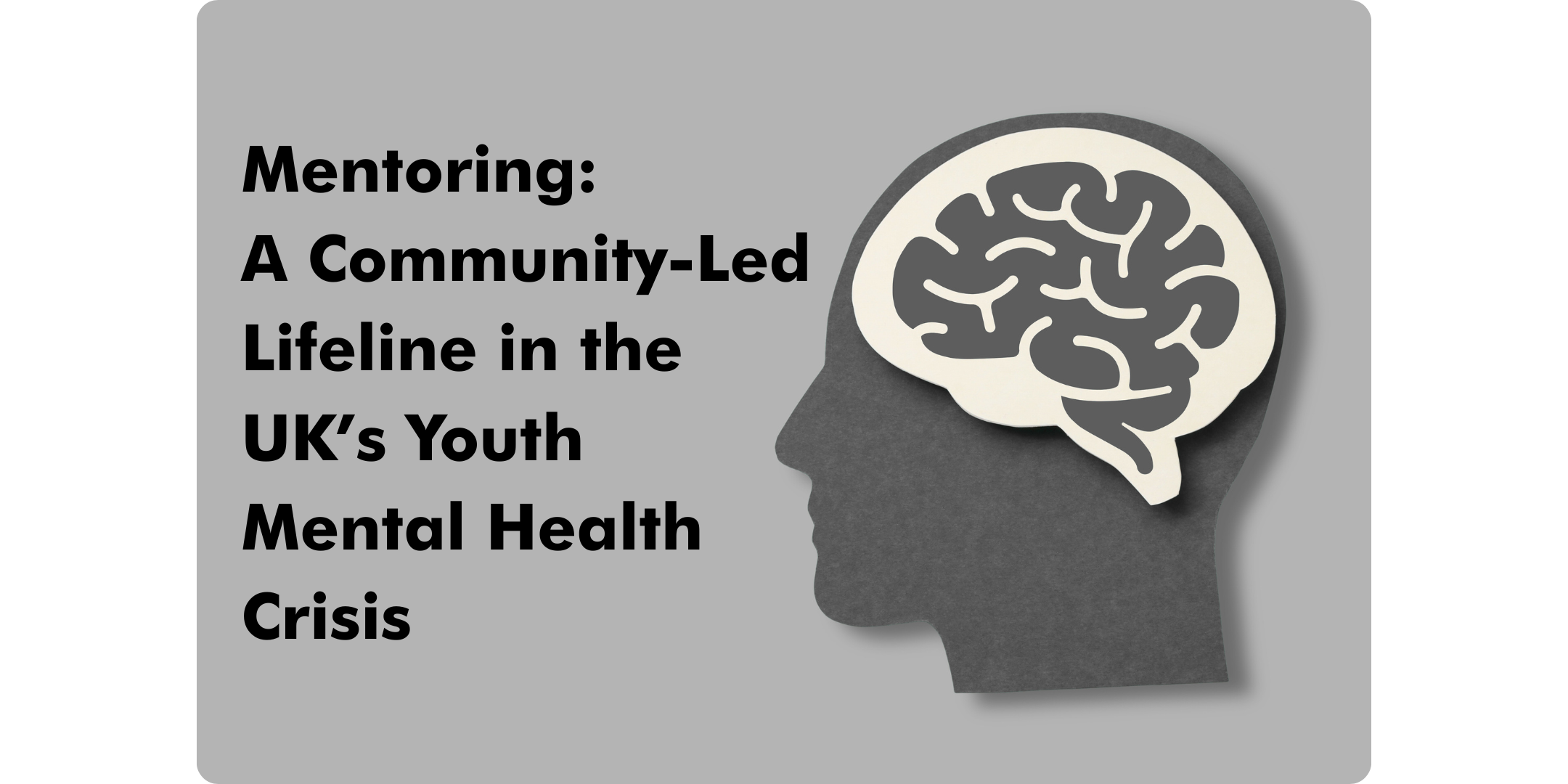Mentoring: A Community-Led Lifeline in the UK’s Youth Mental Health Crisis
The state of young people's mental health in the UK is a national emergency. Anxiety, low self-esteem, and depression are on the rise, creating a generation in need of urgent support. While formal services are overwhelmed, we believe a solution lies closer to home: in the power of community, connection, and mentoring.
The Crisis is Growing
Recent studies paint a stark picture of the mental health challenge facing our children and young people. In 2023, a staggering one in five children and young people aged 8 to 25 had a probable mental health condition, a number that has been rising since 2017 [Mental Health Statistics UK | YoungMinds]. To put that in perspective, this means that in an average class of 30, six young people may be struggling with a probable mental disorder.
Alarmingly, the difficulty in accessing help is worsening. In 2023/24, nearly 79,000 young people were waiting for over a year for mental health treatment from the NHS [Children and young people's mental health: policy and services (England)], with many reporting that their mental health deteriorated during the wait [YoungMinds]. This gap between need and provision is where community-based, early-intervention support is absolutely vital.
The Proven Power of Mentoring
Mentoring is more than just a chat; it’s an evidence-based intervention. A relationship with a caring, non-parental adult can provide consistent, one-on-one support that helps young people manage their challenges before they escalate.
Research has shown that mentoring programmes can have a meaningful positive impact on several key areas of well-being:
Reduced Depressive Symptoms: Mentoring has been consistently associated with a reduction in depressive symptoms in young people [Mentoring and Mental Health].
Improved Self-Esteem and Resilience: By offering guidance and positive modelling, mentors help young people develop coping strategies and a strong sense of self [Impact of mentoring on socio-emotional and mental health outcomes of youth...].
Early Intervention: Mentors provide a crucial first line of emotional support, helping young people cope with emerging issues like anxiety and stress, acting as a bridge to more formal help when necessary [Youth Mentoring: A Crucial Response to the Growing Mental Health Crisis...].
Culturally Sensitive Support is Essential
For young people of African heritage, the mental health crisis is compounded by additional factors like racism and systemic inequality [The association between experiences of racism and mental health on children and young people in the UK: rapid scoping review].
This is why organisations that are Black-led and community-focused, like Br8ke The Silence, are so vital. They are uniquely positioned to understand and respond to the specific needs of the community. A qualitative UK study highlighted that Black-led organisations play a critical role in supporting mental health by identifying and responding to unique needs, and by offering respite from racism that is simply not available in mainstream services [The role of Black-led community organisations in supporting Black mental health: a Black emancipatory action research project].
Community organisations offer a safe, understanding space where young people don't have to explain or justify their experiences of discrimination. This cultural competency allows for true connection and more effective support, which is critical for positive outcomes.
Join the Movement
The mental health crisis won't be solved by waiting lists alone. It requires committed communities, dedicated mentors, and the funding to ensure this life-changing work can continue.
You can be part of this vital lifeline:
Get Involved: See what we're doing and find out about how to join our programmes on our Events page.
Support Our Work: Every donation helps us create safe spaces and train more mentors to support young people. Please consider making a difference today Donate to Br8ke The Silence.
Together, we can ensure every young person has the community support they need to not just survive, but truly thrive.


